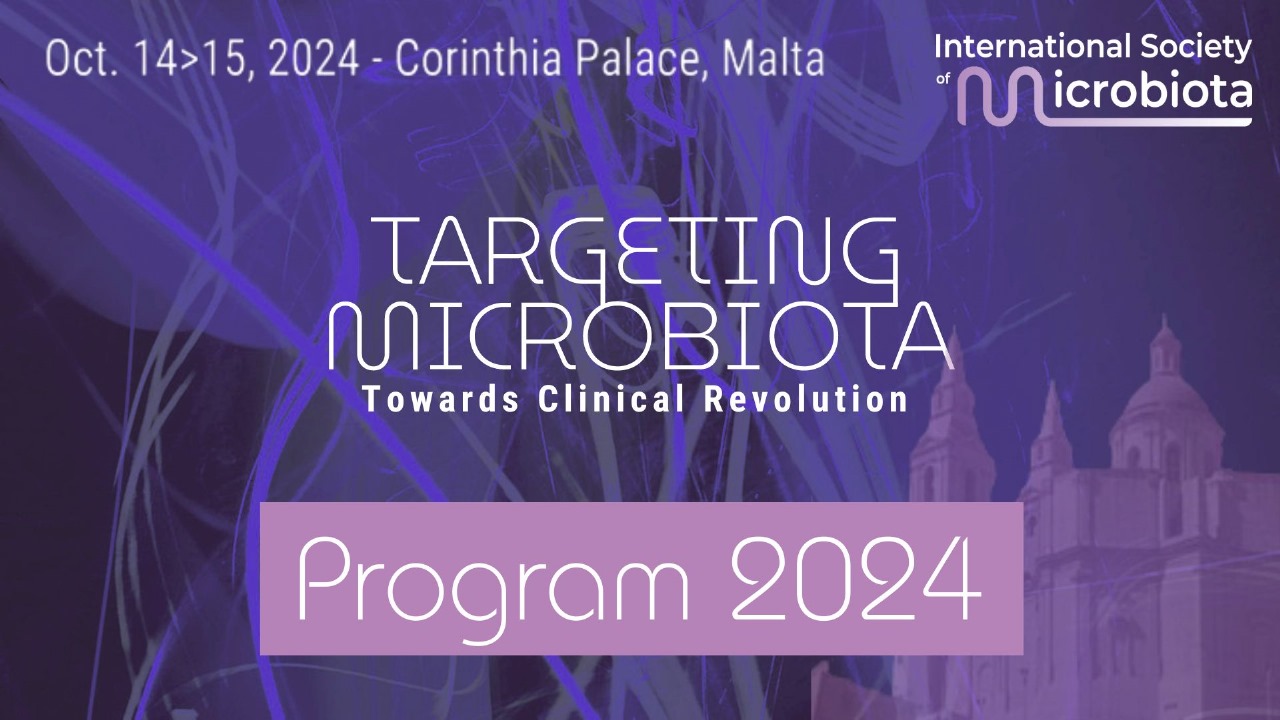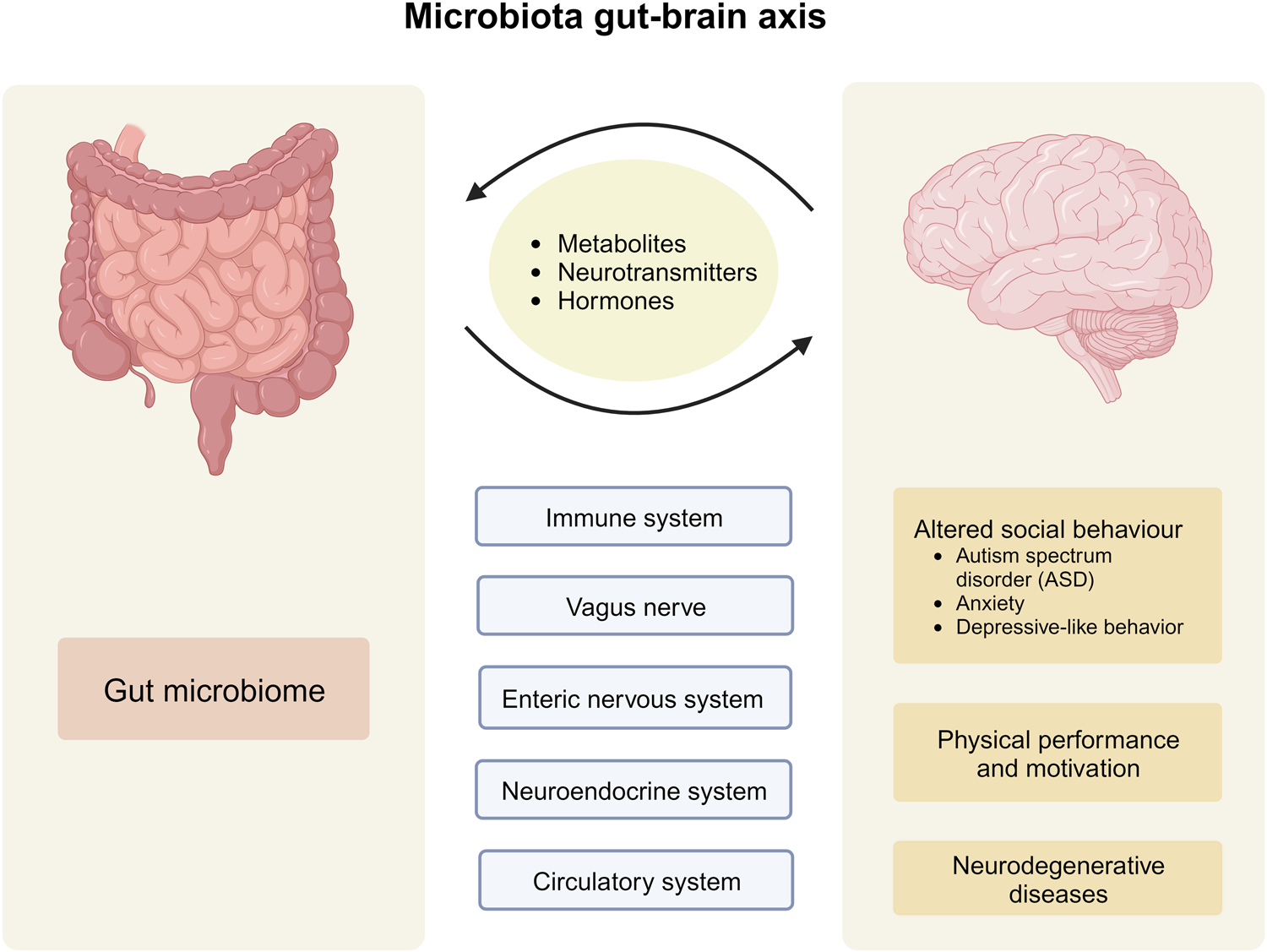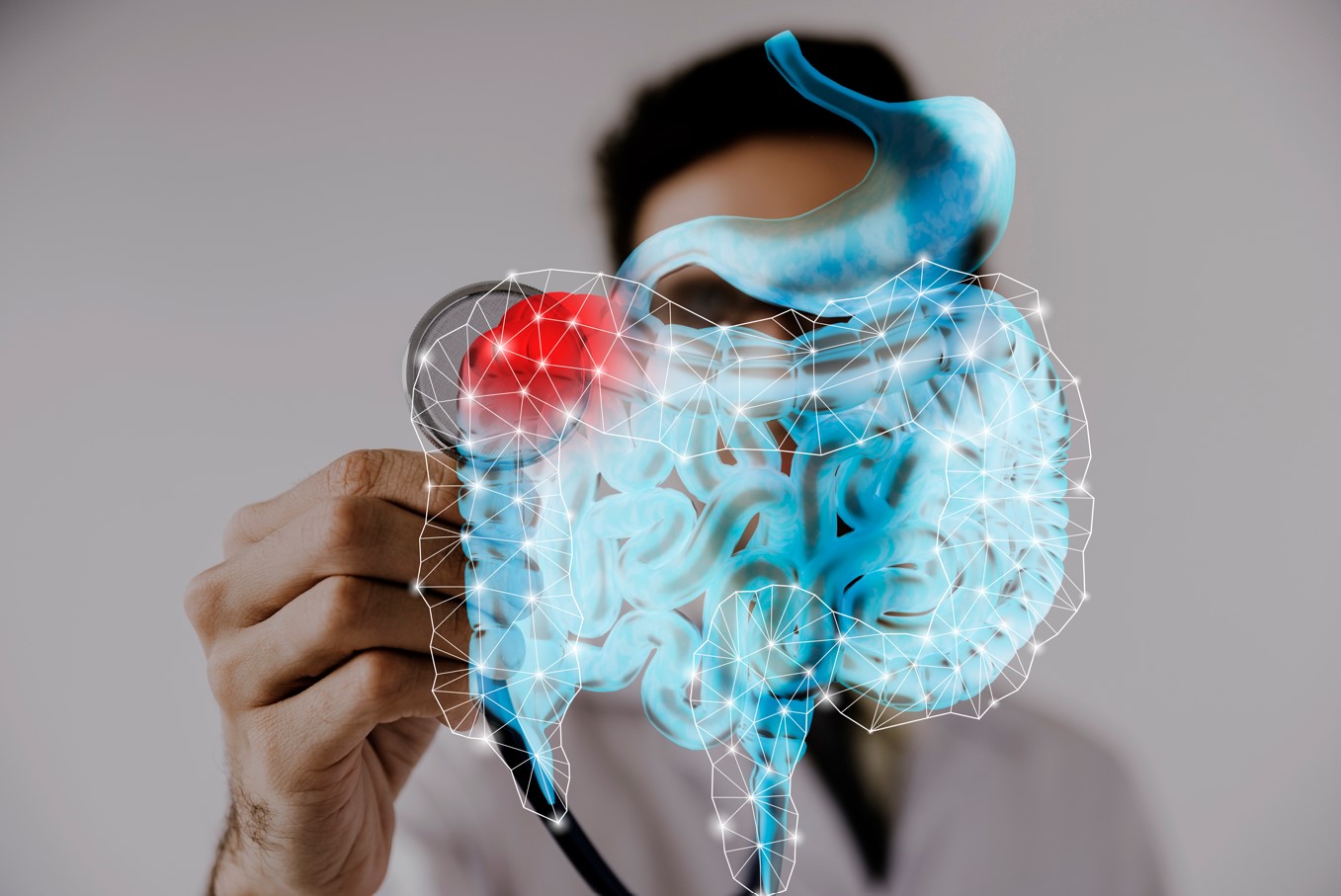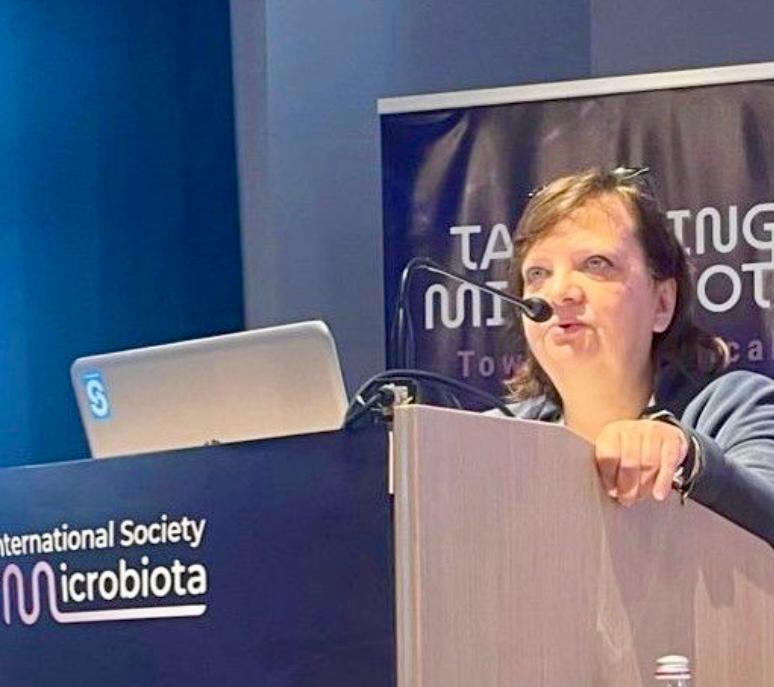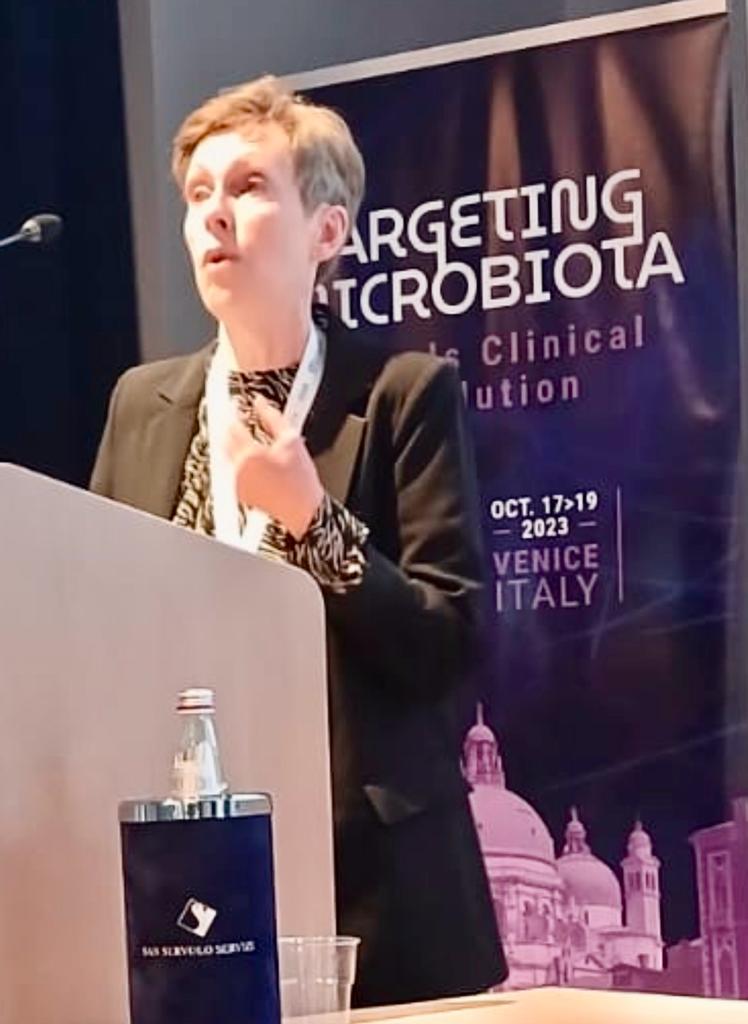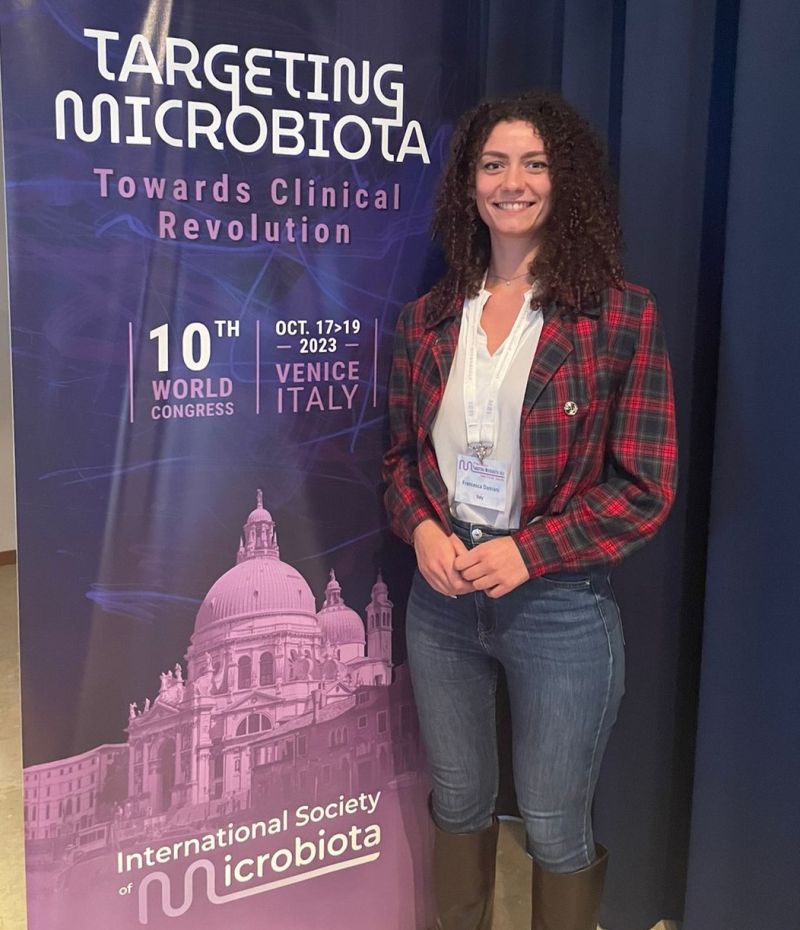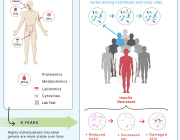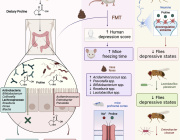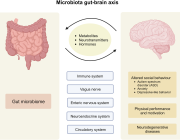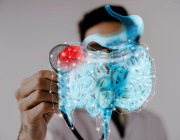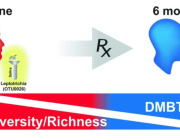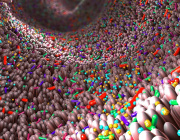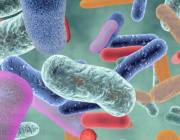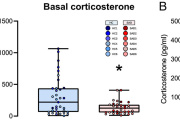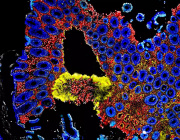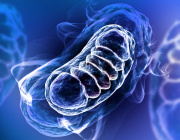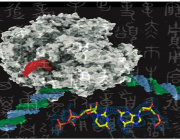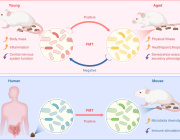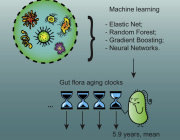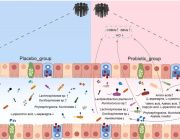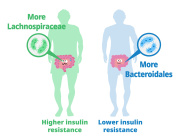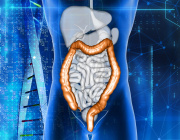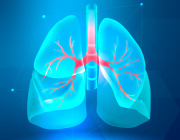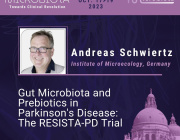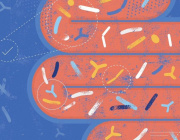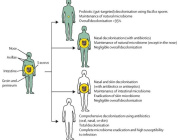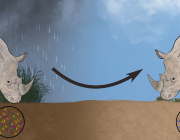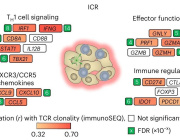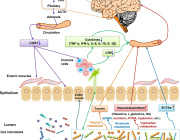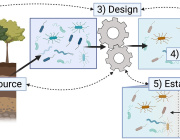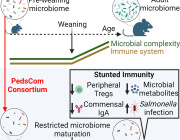Alerts
Probiotics and FMT as Add-On Therapies for Depression
 Dr. André Schmidt, from the University of Basel, Switzerland, will be joining us in October to discuss his latest findings on "Probiotics and FMT as Add-on Therapies for Depression".
Dr. André Schmidt, from the University of Basel, Switzerland, will be joining us in October to discuss his latest findings on "Probiotics and FMT as Add-on Therapies for Depression".
In fact, depression is a highly prevalent and burdensome psychiatric disorder. Even though antidepressants and further therapeutic approaches are widely applied, up to 30% of treatment-resistant patients experience residual symptoms when receiving optimized treatments. Therefore, the development of novel and more efficient treatment approaches is urgently needed. Compelling evidence shows that alterations in the gut microbiota composition impact human physiology and contribute to diseases including psychiatric disorders like depression. The manipulation of the gut microbiota as part of the microbiota-gut-brain (MGB) axis has emerged as promising new target for the treatment of depression.
In this talk, Dr. Schmidt presents data from a randomized controlled trial exploring clinical and biological effects along the MGB axis of probiotic supplementation in patients with depression. He further shows data from two depressed patients receiving fecal microbiota transplantation. These findings will be discussed in the view of current research and potential suggestions for future studies will be proposed aiming at developing microbial interventions for depression care.
Join Dr. Schmidt and other experts to know more about the "Strategies, Innovations & Challenges to Target Microbiota Dysbiosis".
Targeting Microbiota 2022 Congress
October 19-21, 2022 - Paris, France
www.microbiota-site.com
The Probiotic Strain H. alvei HA4597 for Weight Loss
 It is a great pleasure to welcome Dr. Pierre Déchelotte, from Rouen Normandy University, France during the 9th World Congress.
It is a great pleasure to welcome Dr. Pierre Déchelotte, from Rouen Normandy University, France during the 9th World Congress.
Dr. Déchelotte will present his most recent findings on The Probiotic Strain H. alvei HA4597 for Weight Loss, during the session dedicated to "Strategies, Innovations & Challenges to Target Microbiota Dysbiosis"
Targeting Microbiota 2022 Congress
October 19-21, 2022 - Paris, France
www.microbiota-site.com
Proof-of-Principle Demonstration of Endogenous Circadian System and Circadian Misalignment Effects on Human Oral Microbiota
 Dr. Frank Scheer, from Harvard Medical School, USA will be discussing his most recent findings on ''Proof-of-principle demonstration of endogenous circadian system and circadian misalignment effects on human oral microbiota''.
Dr. Frank Scheer, from Harvard Medical School, USA will be discussing his most recent findings on ''Proof-of-principle demonstration of endogenous circadian system and circadian misalignment effects on human oral microbiota''.
Shift workers are at increased risk for the development of diabetes, obesity, and cardiovascular disease. Dr. Scheer and colleagues have shown under highly-controlled human experimental protocols that circadian misalignment—the misalignment between the endogenous circadian system and the sleep/wake cycle—results in increases in inflammatory markers, elevated blood pressure, changes in hunger/appetite control, and impaired glucose tolerance; both in non-shift workers and in real-life shift workers.
Since microbiota can play a key role in metabolism and inflammation, Dr. Scheer aimed to determine whether human oral microbiota (suitable for non-invasive and frequent repeat sampling): (1) express endogenous circadian rhythms (i.e., independent of sleep, eating, physical activity, and environmental light rhythms); and (2) are impacted by circadian misalignment.
In a proof-of-concept study, using highly-controlled 14-day in-laboratory experimental circadian studies, Dr. Scheer found that one of five dominant phyla and three of fourteen dominant genera exhibited endogenous circadian rhythms. Importantly, he found that four of the five dominant phyla and eight of the fourteen dominant genera were impacted by circadian misalignment. Furthermore, inferred gene content analysis indicated changes in specific functional pathways associated with metabolic control and immunity.
These findings may have relevance for the millions of shift workers, jet travelers, as well as the broader population when we change the timing of our sleep/wake cycles.
Additonal microbiota topics will be introduced during the Targeting Microbiota 2022 Congress, held this October - in Paris.
Targeting Microbiota 2022 Congress
October 19-21, 2022 - Paris, France
www.microbiota-site.com
Short-chain Fatty Acids as Modulators of Redox Signaling in Health and Disease
 Dr. Carmen González-Bosch, from Universitat de València, Spain will be discussing her most recent findings on ''Short-chain Fatty Acids as Modulators of Redox Signaling in Health and Disease''.
Dr. Carmen González-Bosch, from Universitat de València, Spain will be discussing her most recent findings on ''Short-chain Fatty Acids as Modulators of Redox Signaling in Health and Disease''.
It is now apparent that the microbiota is a critical determinant of human health and disease and a key regulator of host physiology. Several health benefits of specific food-derived molecules are related to their ability to activate antioxidant defences. Among these, is the well-studied isothiocyanate sulforaphane, found in cruciferous vegetables such as broccoli.
This protection occurs through activation of the Nuclear erythroid 2-related factor 2 (NRF2)-KEAP1 pathway, in which NRF2 serves as a master regulator of cellular antioxidant defences. Notably, short chain fatty acids, such as butyrate and propionate, produced by colonic bacteria and obtained from the diet, are also activators of NRF2, although studies on their role as regulators of redox homeostasis is limited.
Dr. González-Bosch recently critically reviewed this field, providing convincing evidence supporting their cytoprotective roles in suppressing inflammation and carcinogenesis and the consequences of aging.
The fact that phytochemicals, including sulforaphane, activate similar redox-sensitive genes in both plant and mammalian cells, prompted us to initiate a translational research project in collaboration with colleagues at King´s College of London with the objective of integrating knowledge from priming plants and mammalian cells based on redox homeostasis.
The design of improved experimental approaches to explore the mechanisms of production and action of SCFAs in cellular redox signaling under physiological oxygen levels will underpin strategies for developing personalized nutrition and therapeutics for redox medicine.
The Targeting Microbiota 2022 Congress, held this October - in Paris, will be hosting similar interesting topics on microbiota.
Targeting Microbiota 2022 Congress
October 19-21, 2022 - Paris, France
www.microbiota-site.com
Manipulating Fiber Polysaccharide Structure to Alter Targeting to Gut Microbiota
 Dr. Stephen Lindemann, from Purdue University, USA will be discussing his most recent findings on ''Manipulating Fiber Polysaccharide Structure to Alter Targeting to Gut Microbiota''.
Dr. Stephen Lindemann, from Purdue University, USA will be discussing his most recent findings on ''Manipulating Fiber Polysaccharide Structure to Alter Targeting to Gut Microbiota''.
Modulation of the gut microbiome’s composition and function using prebiotic fibers requires that individuals’ microbiota respond more similarly than idiosyncratically. Unfortunately, however, most common prebiotics are broadly utilized by diverse microbiota, and often fail in feeding trials to increase abundances of their targeted microbes. In contrast, however, arabinoxylans, which are hemicellulosic fibers from brans, elicit highly reproducible microbiome responses across individuals, both with respect to community structure and metabolic function. Fine differences in arabinoxylan structure make significant impacts on the most adapted microbial consortia. Furthermore, enzymatic pre-modification of arabinoxylan structure is able to retarget arabinoxylans to different microbial consumers, and their associated metabolites.
This talk will underscore the use of these complex fibers for predictable microbiome impact across diverse individual gut microbiomes. Join Dr. Lindemann during the Session entitled ''Strategies, Innovations & Challenges to Target Microbiota Dysbiosis'' to learn more about his talk.
More interesting topics on microbiota in nutrition will be presented during the Targeting Microbiota 2022 Congress, held this October - in Paris.
You can also submit your abstract for this session.
Targeting Microbiota 2022 Congress
October 19-21, 2022 - Paris, France
www.microbiota-site.com
Beneficial Effects of Natural Mineral Waters on Intestinal Inflammation and the Mucosa-Associated Microbiota
 Prof. Nicolas Barnich, from Université Clermont Auvergne, France will be discussing his most recent findings on ''Beneficial Effects of Natural Mineral Waters on Intestinal Inflammation and the Mucosa-Associated Microbiota''.
Prof. Nicolas Barnich, from Université Clermont Auvergne, France will be discussing his most recent findings on ''Beneficial Effects of Natural Mineral Waters on Intestinal Inflammation and the Mucosa-Associated Microbiota''.
Join Targeting Microbiota 2022 to benefit from Dr. Barnich's experience, and get introduced to other interesting topics on microbiota.
You can also submit your abstract for this session.
Targeting Microbiota 2022 Congress
October 19-21, 2022 - Paris, France
www.microbiota-site.com
Interpreting Microbiomes Via Multi-omics for Precision Health
 Dr. Nathan Price, from Thorne HealthTech, USA will be discussing his most recent findings on ''Interpreting microbiomes via multi-omics for precision health''
Dr. Nathan Price, from Thorne HealthTech, USA will be discussing his most recent findings on ''Interpreting microbiomes via multi-omics for precision health''
Healthcare in the 21st century is becoming increasingly focused on wellness as a key strategy for dealing with the chronic diseases that account for the majority of healthcare costs today. To enable the precision health strategies of the future — what we call ’scientific wellness’ — it is necessary to generate large amounts of data on healthy people to quantify wellness states and to observe the earliest transitions to disease in order to enable predictive and preventive medicine.
In his talk, Dr. Price will discuss how such 'deep phenotyping’ data has been used in particular to show:
- The ability of the blood metabolome to interpret key aspects of gut microbiome health
- The gut microbiome becoming more unique to each individual throughout healthy aging
- Intervening in the microbiome to improve health.
He will also introduce a new microbiome sample collection technology that his team developed at Thorne HealthTech.
Join us for Targeting Microbiota 2022, this October - in Paris, to know more about similar interesting topics on microbiota.
Targeting Microbiota 2022 Congress
October 19-21, 2022 - Paris, France
www.microbiota-site.com
Understanding the Heterogeneity of Host-associated Microbial Communities
 Prof. Lei Dai, from Shenzhen Institutes of Advanced Technology (China), will be discussing his most recent findings on ''Understanding the Heterogeneity of Host-associated Microbial Communities''
Prof. Lei Dai, from Shenzhen Institutes of Advanced Technology (China), will be discussing his most recent findings on ''Understanding the Heterogeneity of Host-associated Microbial Communities''
The realization that microbial communities, associated with virtually all multicellular organisms, have tremendous impact on their hosts’ health and development is considered one of the most important scientific discoveries in the last decade.
Prof. Dai will introduce his recent efforts to characterize the heterogeneity of host-associated microbiome in three different aspects:
1) Dynamics. There is growing evidence that baseline composition may be an important contributor to the personalized response of gut microbiome. Prof. Dai developed computational approaches to study key factors underlying the heterogeneity in microbiome dynamics.
2) Space. The spatial heterogeneity of microbial communities has been observed across different habitats, ranging from human gastrointestinal tract to plant rhizosphere. He developed in situ spatial analysis of microbiome at single cell resolution, which is crucial for elucidating the principles governing the assembly of microbiome.
3) Strain. The within-species functional heterogeneity has been increasingly recognized as an important factor in shaping the ecology and evolution of microbiome. He developed bioinformatics tools to infer strain-level composition and functional profiles from metagenomics data.
In summary, Prof. Dai developed novel methods to study the dynamical response, spatial structure and strain-level diversity of microbial communities. These methods will open up new dimensions to understand the complexity of microbiome and facilitate the precise engineering of microbiome.
Targeting Microbiota 2022 Congress
October 19-21, 2022 - Paris, France
www.microbiota-site.com
Gut Microbiota-Derived Extracellular Vesicles on Obesity, Diabetes and Metabolism

Dr. Fermin I. Milagro, from the University of Navarra (Spain), will be discussing his most recent findings on "Gut Microbiota-Derived Extracellular Vesicles on Obesity, Diabetes and Metabolism".
Gut microbiota dysbiosis has been proposed as a contributing factor to the etiology of obesity and diabetes. In this context, gut microbiota-derived extracellular vesicles (EV) are gaining attention as mediators in the gut microbiota-host communication. EV derived from gut microbiota and probiotic bacteria contain a myriad of bioactive molecules (including proteins, microRNAs, and lipids) that could modulate important biological functions with overall impact on host health. It has been reported that EV-derived from specific bacteria induce different physiological responses. For example, those from Akkermansia muciniphila are known to ameliorate obesity and diabetes in mice. Some of the underlying mechanisms are the modulation of gut permeability, inflammation, and host metabolism. For these reasons, nutritional and pharmacological approaches based on the administration of EV derived from probiotics or gut microbiota bacteria should be viewed as a new therapeutic tool to treat obesity and diabetes. Also, the characteristics and amount of gut microbiota-derived EV could be modulated through dietary means to prevent and treat metabolic diseases.
Targeting Microbiota 2022 Congress
October 19-21, 2022 - Paris, France
www.microbiota-site.com
Microbial and Nutritional Influence on Endocrine Control of Growth
 Dr. François Leulier from Université de Lyon, France will be discussing his most recent findings on “Microbial and Nutritional Influence on Endocrine Control of Growth" in a session dedicated to “Personalized Nutrition and Microbiota”.
Dr. François Leulier from Université de Lyon, France will be discussing his most recent findings on “Microbial and Nutritional Influence on Endocrine Control of Growth" in a session dedicated to “Personalized Nutrition and Microbiota”.
Metazoans establish reciprocal interactions with their commensal bacterial communities. Despite recent progress, a clear view of the physiological benefits associated with host/microbiota relationship remains elusive. Hence the molecular mechanisms through which the microbiota exerts its beneficial influences are still largely undefined.
In this line, he aims at deciphering the molecular dialogue governing the mutualistic interaction between intestinal bacteria and their host. To this end, he is using a genetically tractable gnotobiotic animal model: Drosophila melanogaster, which are associated to its natural dominant commensals, Lactobacillus plantarum and Acetobacter pomorum. He is developing multiscale functional approaches to identify the mechanisms that underlie their mutualistic relationship, which results in the promotion of host juvenile growth.
His approaches aim at identifying both the bacterial and host genetic and metabolic networks required to sustain their mutualistic relationship. In addition, he is translating his discoveries to mouse gnotobiotic and conventional models by studying the impact of selected strains or newly developed minimal communities of intestinal bacteria on mice linear growth.
He will present his latest results using Drosophila and Mouse models.
Remember that you can also participate in the “Nutrition, Water and Microbiota: The Missing Links” session by submiting your abstract here.
Targeting Microbiota 2022 Congress
October 19-21, 2022- Paris, France
www.microbiota-site.com
Precision Nutrition to Modulate Gut Microbiota in Reproductive Health and Pregnancy
 Dr. Annalisa Terranegra from Sidra Medical and Research Center, Qatar, will be discussing her most recent findings on ”Precision nutrition approach to modulate gut microbiota in reproductive health and pregnancy"
Dr. Annalisa Terranegra from Sidra Medical and Research Center, Qatar, will be discussing her most recent findings on ”Precision nutrition approach to modulate gut microbiota in reproductive health and pregnancy"
A poor diet during preconception period and pregnancy can cause deficiency in nutrients impacting on gene pathways involved in the metabolism, immune system, angiogenesis and other pathways and leading to infertility, pregnancy complications (i.e., gestational diabetes, gestational hypertension, preterm birth, etc.) and the risk of non-communicable diseases (NCD) in the adult life.
The recent advance in the multi-omics technologies opens new routes to discover the molecular mechanisms underlying the role of nutrients in fertility and pregnancy complications.
The study of the microbiota shed lights on the microbial dysbiosis caused by unbalanced diet and its link with pregnancy complications, such as gestational diabetes and preterm birth, among others. However, the difference in genetic background as well as in the environmental factors makes difficult to define the exact mechanism controlling the microbiota in the pregnancy complications and infertility among different populations. The science of precision nutrition aims to provide precise diagnosis and personalized treatments to the individual patient taking into account genetics, microbiota composition and environmental factors.
Her studies focus on understanding the response of the gut microbiota to different dietary intakes both in pregnancy complications and in-vitro fertilization treatments in unexplored populations from Middle East and Far East.
You can also present a short oral presentation during this session, by submitting your abstract here.
Targeting Microbiota 2022 Congress
October 19-21, 2022- Paris, France
www.microbiota-site.com
Exploring a Healthy Human Gut Microbiota in a Mediterranean Cohort
 Dr. Andrés Moya from the University of València, Spain will join us this year to present his most recent findings on "Exploring a healthy human gut microbiota in a Mediterranean cohort"
Dr. Andrés Moya from the University of València, Spain will join us this year to present his most recent findings on "Exploring a healthy human gut microbiota in a Mediterranean cohort"
In his talk, he will present his recent study where he characterize the composition and function of the gut microbiota of a healthy Mediterranean cohort structured in three groups of age (Infants, Adults, and Elderly). This cohort has been sampled regularly for up to more than two years. He will report on a set of mutualistic symbionts constituting the microbial core of the Mediterranean cohort across the entire life. Also, he will present robustness differences of the gut microbiota at different age periods and the existence of taxa, particularly at elderly, decoupled from and do not favor their host.
Targeting Microbiota 2022 Congress
October 19-21, 2022- Paris, France
www.microbiota-site.com
Best Short Oral Presentation Awards 2021
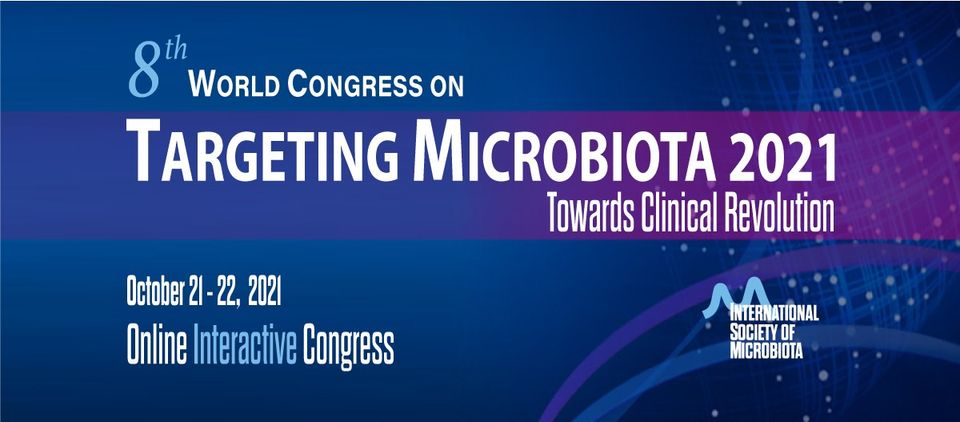
35 Short Oral Presentations were communicated during the 8th World Congress on Targeting Microbiota 2021, held on October 20-22.
The scientific committee nominated 7 presentations for the Best Short Oral Presentation Awards of 2021:
Postbiotic Metabolite - Uroloithin A as a Lead Molecule for Atopic Dermatitis
Sebastian Granica, Medical University of Warsaw, Poland
Biotransformation of the Constituents of Medicinal Plants Used in the Urinary Tract Infections by Human and Pig Gut Microbiota
Dominik PopowskI, Medical University of Warsaw, Poland
Synthetic Derivatives of Urolithin A Increase CACO-2 Monolayer Integrity, Impede Intestinal Glucuronidation, and Suppress TNF Alpha Production in THP-1 Derived Macrophages
Maciej Korczak, Medical University of Warsaw, Poland
Generation of Microbial Compositions From 16S rRNA Sequences — Are You Generating Medically Meaningful Analyses?
Eric Nayman, Herbert Wertheim College of Medicine, USA
A Systematic Review on the Latest Development of Probiotics Intervention as Prevention and Therapy for Covid-19 Infection
Learn-Han Lee, Monash University Malaysia, Malaysia
Gut Microbiome Predicts Clinically Important Improvement in Patients with Rheumatoid Arthritis
Jaeyun Sung, Mayo Clinic, USA
Probiotic Supplementation and Micronutrient Status in Healthy Subjects: A Systematic Review of Clinical Trials
Ahmad Saedisomeolia, McGill University, Canada
Winners of the Best Short Oral Presentations - Targeting Microbiota 2021
 Postbiotic Metabolite - Uroloithin A as a Lead Molecule for Atopic Dermatitis - Sebastian Granica, Medical University of Warsaw, Poland
Postbiotic Metabolite - Uroloithin A as a Lead Molecule for Atopic Dermatitis - Sebastian Granica, Medical University of Warsaw, Poland
 Gut Microbiome Predicts Clinically Important Improvement in Patients with Rheumatoid Arthritis - Jaeyun Sung, Mayo Clinic, USA
Gut Microbiome Predicts Clinically Important Improvement in Patients with Rheumatoid Arthritis - Jaeyun Sung, Mayo Clinic, USA
In the years ahead, Dr. Sung's research group will continue working on ways to apply personalized microbiome data for disease diagnostics and predictive analytics.
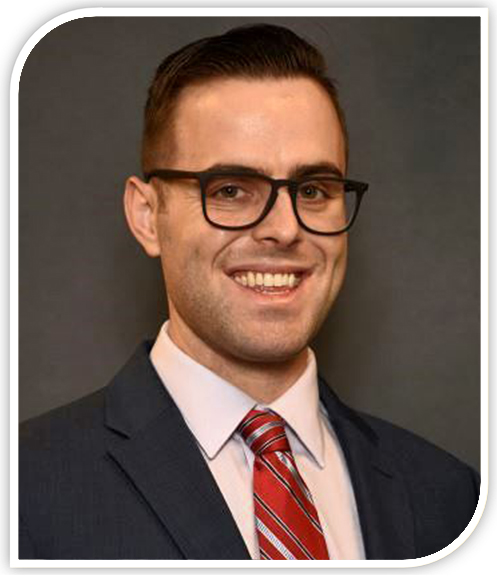 Generation of Microbial Compositions From 16S rRNA Sequences — Are You Generating Medically Meaningful Analyses? - Eric Nayman, Herbert Wertheim College of Medicine, USA
Generation of Microbial Compositions From 16S rRNA Sequences — Are You Generating Medically Meaningful Analyses? - Eric Nayman, Herbert Wertheim College of Medicine, USA
“As we are becoming increasingly aware of the vital role that indigenous human microbiota plays in regulating host health and behavior, we must improve our ability to prove causality in this relationship, which is what I intend to keep contributing toward.”
Targeting Microbiota 2021 Congress
October 20-22, 2021 - Interactive Online
www.microbiota-site.com
Best Poster Presentation Awards 2021

Out of 24 Poster Presentations communicated during Targeting Microbiota 2021, the scientific committee nominated 7 posters for the Best Poster Presentation Awards of 2021:
Dietary Supplementation with Spray-Dried Porcine Plasma Has Prebiotic Effects on Gut Microbiota in Senescent Mice
Cristina Rosell-Cardona, Universitat de Barcelona, Spain
The Impact of Early-Life Antibiotic Exposure on the Behaviors and Gut Microbiota in Mice
Yuan Yuan Lin, Cheng Kung University, Taiwan
Gut-Derived Indole-3-Propionic Acid May Modulate the Mitochondrial Organization in Hepatic Stellate Cells
Mariana Ilha, University of Eastern Finland, Finland
Selection of Psychobiotic Microorganisms and Development of a Dietary Supplement with Potential Effect on Mental Health
Melania Casertano, University of Naples Federico II, Italy
Research on Natural Products Applied in Anxiety and Mood Disorders with Regard to Gut Microbiota
Aleksandra Gorczyńska, Medical University of Warsaw, Poland
The Probiotic Yeast Saccharomyces boulardii CNCM I-745 Prevents Invasion of Vaginal Epithelial Cells by Candida albicans and Gardnerella vaginalis
Philippe Tixador, Biocodex, France
Gut Microbiota-Mediated Glucagon-Like Peptide-1 Modulates Locomotor Activity via Vagal-Dependent Pathway
Tzu-Ting Lai, National Cheng Kung University, Taiwan
Winners of the Poster Presentations - Targeting Microbiota 2021
 Gut-Derived Indole-3-Propionic Acid May Modulate the Mitochondrial Organization in Hepatic Stellate Cells - Mariana Ilha, University of Eastern Finland, Finland
Gut-Derived Indole-3-Propionic Acid May Modulate the Mitochondrial Organization in Hepatic Stellate Cells - Mariana Ilha, University of Eastern Finland, Finland
“Receiving this award was very nice and gives me more energy and confidence to continuous my research about the influence of the gut derived metabolite indole-3- propionic acid in mitochondrial function and future possible compound for the resolution of liver fibrosis”
 Dietary Supplementation with Spray-Dried Porcine Plasma Has Prebiotic Effects on Gut Microbiota in Senescent Mice - Cristina Rosell-Cardona, Universitat de Barcelona, Spain
Dietary Supplementation with Spray-Dried Porcine Plasma Has Prebiotic Effects on Gut Microbiota in Senescent Mice - Cristina Rosell-Cardona, Universitat de Barcelona, Spain
"Currently, my research is focused on the effects of spray-dried plasma proteins on microbiota composition and its neuroprotective effects against Alzheimer’s disease hallmarks in senescent mice. Next year, I would like to study if these effects are linked through the gut-brain axis. Personally, I am about to finish my PhD and I am looking forward to finding new opportunities to develop my research career, improve my skills, and look deeply into the gut-brain axis field."
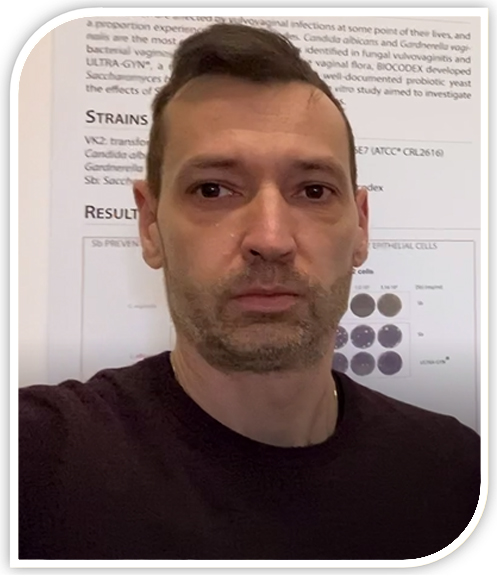 The Probiotic Yeast Saccharomyces boulardii CNCM I-745 Prevents Invasion of Vaginal Epithelial Cells by Candida albicans and Gardnerella vaginalis - Philippe Tixador, Biocodex, France
The Probiotic Yeast Saccharomyces boulardii CNCM I-745 Prevents Invasion of Vaginal Epithelial Cells by Candida albicans and Gardnerella vaginalis - Philippe Tixador, Biocodex, France
“For the next year, we would like to complete this study notably by characterizing the mechanisms which promote the beneficial effects of S.boulardii CNCMI-745 in the treatment of the vulvovaginitis and publish all these data in a peer-to-peer scientific journal.”
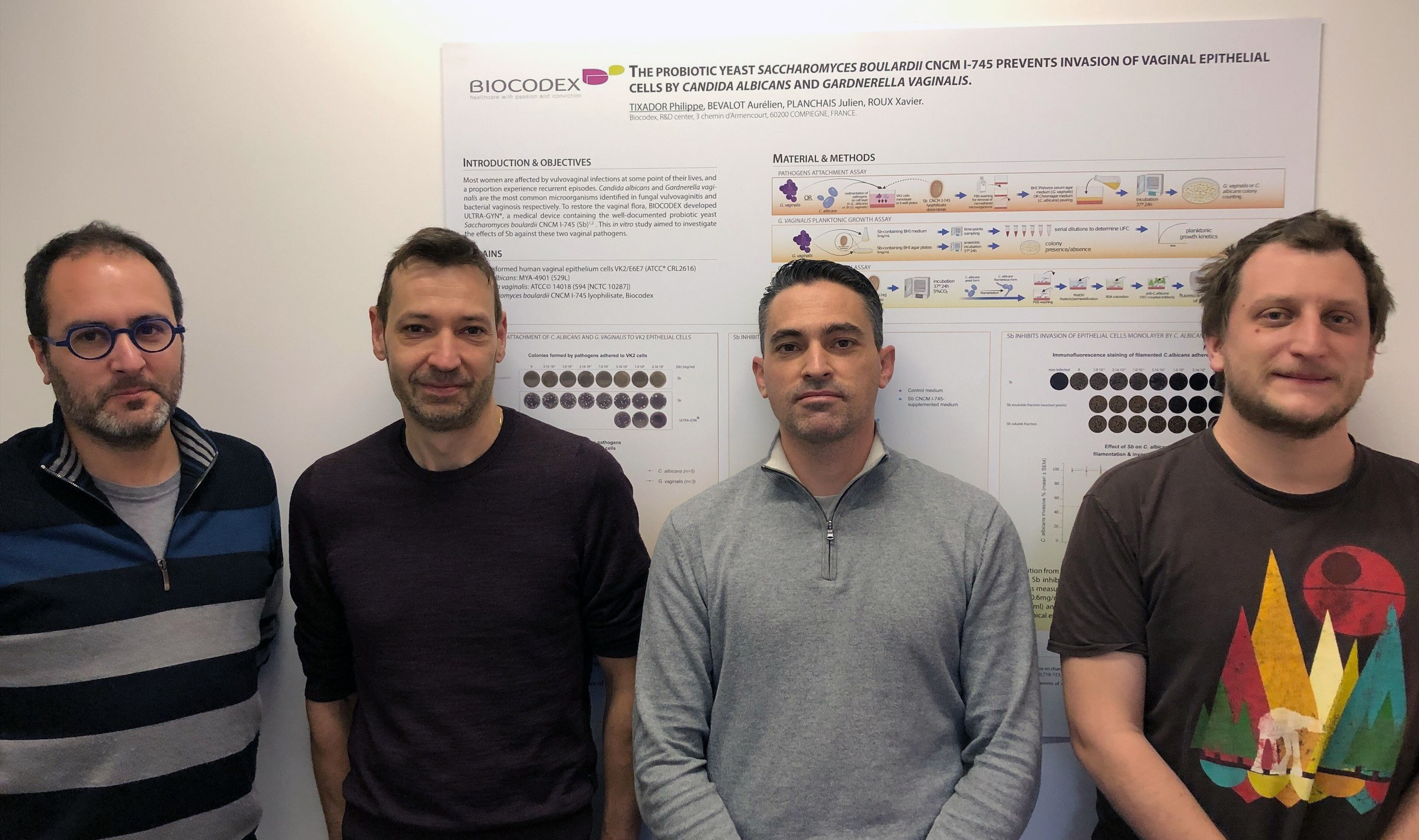
Targeting Microbiota 2021 Congress
October 20-22, 2021 - Interactive Online
www.microbiota-site.com
Scientific Awards of Targeting Microbiota 2021

Targeting Microbiota 2021 was successully held on October 20-22 2021, as an Interactive Online meeting.
At the end of the congress, the scientific committee decided to award some speakers for their excellent contribution.
Scientific Award #1
 After an excellent and special talk about "Microbiota Transfer Therapy for Autism: Multi-Omic Approaches and Lessons Learned", Dr. Rosa Krajmalnik-Brown was discerned the Trageting Microbiota 2021 Scientific Award.
After an excellent and special talk about "Microbiota Transfer Therapy for Autism: Multi-Omic Approaches and Lessons Learned", Dr. Rosa Krajmalnik-Brown was discerned the Trageting Microbiota 2021 Scientific Award.
Dr. Krajmalnik-Brown gave an overview on her achievements and perspective in Autism Disorders. She is the director of the Biodesign Center for Health Through Microbiomes and a Professor at the School of Sustainable Engineering and The Built Environment, at Arizona State University, USA.
She is a pioneer in research on gut microbiome and autism. She is author of 4 patents and more than 115 peer-reviewed publications. Dr. Krajmalnik-Brown specializes on molecular microbial ecology for bioremediation, the use of microbial systems for bioenergy production, and the human intestinal microbial ecology and its relationship to obesity, bariatric surgery, metabolism, and autism.
Scientific Award #2
 Dr. Aleksander Kostic was also the winner of a scientifc award for his presentation about Reconstruction of Ancient Microbial Genomes from the Human Gut.
Dr. Aleksander Kostic was also the winner of a scientifc award for his presentation about Reconstruction of Ancient Microbial Genomes from the Human Gut.
Dr. Aleksandar Kostic along with his team have shown that industrial lifestyles are correlated with both a lower diversity in the gut microbiome and increased incidence of chronic diseases, such as obesity and autoimmune diseases. Examining our ancestral gut microbiome may provide insights into aspects of human–microbiome symbioses that have become altered in the present-day industrialized world. Reconstruction of metagenome-assembled genomes (MAGs) is an emerging approach to recover high-quality genomes and previously undescribed species-level genome bins (SGBs) from shotgun metagenomics data. Sequencing reads are de novo assembled into contiguous sequences (contigs), and contigs are binned to form draft genomes.
Scientific Award #3
 Prof. Siew Ng gave a presentation on The Promise of Microbiota Modulation during COVID-19 Pandemic, for which she was discerned a scientific award.
Prof. Siew Ng gave a presentation on The Promise of Microbiota Modulation during COVID-19 Pandemic, for which she was discerned a scientific award.
Siew Ng is Director of Microbiota I-Center (MagIC) of the Chinese University of Hong Kong. She and her team were the first to report the role of the gut microbiome in COVID-19 and they have developed a novel microbiome immunity consortia to hasten recovery and restore dysbiosis in COVID-19 and its sequele leading to global impact.
Animal Microbiota Symposium Scientific Award
 During the session on Targeting Animal Microbiota Symposium, Dr. Andres Gomez was discerned a scientific award for his presentation on
During the session on Targeting Animal Microbiota Symposium, Dr. Andres Gomez was discerned a scientific award for his presentation on
This study, in collaboration with Dr Krishona Martinson- University of Minnesota, was initially conducted to asses whether a reduced lignin (RL) version of alfalfa (8% less compared with the standard version (SV)) improved feed digestibility in horses. The data showed that the incorporation of RL alfalfa in horse diets increased apparent dry matter digestibility; but did not change mean fecal particle size, apparent crude protein digestibility, or mean retention time. When analyzing the fecal microbiome of the horses, when shifting from RL to SV of alfalfa, there were no apparent changes. However, we realized that each horse had a unique microbiome, which responded in an individual and significant manner to the content of lignin in alfalfa. These horse-unique patterns also correlated with individual outcomes in other feed digestibility traits, such as apparent dry matter digestibility and mean fecal particle size, all of which fluctuated differently in each horse. The study shows that horses have highly individualized microbiomes, which may determine individual responses to different types of feed. In other words, dietary interventions in horses trigger individualized microbiome responses, and hence the effects and benefit of some diets ands ingredients may be horse-specific. These results open the door to consider individualized nutrition strategies in companion and food animals.
Targeting Microbiota 2021 Congress
October 20-22, 2021 - Interactive Online
www.microbiota-site.com
Microbiota Transfer Therapy for Autism: Multi-Omic Approaches and Lessons Learned
 The International Society of Microbiota is pleased to invite Dr. Rosa Krajmalnik-Brown to provide an Inaugural talk on "Microbiota Transfer Therapy for Autism: Multi-Omic Approaches and Lessons Learned". Dr. Rosa Krajmalnik-Brown will overview her achievements and perspective in Autism Disorders. She is the director of the Biodesign Center for Health Through Microbiomes and a Professor at the School of Sustainable Engineering and The Built Environment, at Arizona State University, USA.
The International Society of Microbiota is pleased to invite Dr. Rosa Krajmalnik-Brown to provide an Inaugural talk on "Microbiota Transfer Therapy for Autism: Multi-Omic Approaches and Lessons Learned". Dr. Rosa Krajmalnik-Brown will overview her achievements and perspective in Autism Disorders. She is the director of the Biodesign Center for Health Through Microbiomes and a Professor at the School of Sustainable Engineering and The Built Environment, at Arizona State University, USA.
Role of Microbiota-Gut-Brain Axis Dysfunctions Induced by Infections in the Onset of Anorexia Nervosa
 Dr. Marie Galmiche, from Normandie University, France, will join Targeting Microbiota 2021.
Dr. Marie Galmiche, from Normandie University, France, will join Targeting Microbiota 2021.
Dr. Galmiche will give a talk about "Role Of Microbiota-Gut-Brain Axis Dysfunctions Induced by Infections in the Onset of Anorexia Nervosa"
Targeting Microbiota 2021 Congress
October 20-22, 2021 - Paris, France & Online
www.microbiota-site.com
Tryptophan Metabolism in Gut Microbes and Brain Axis

Prof. Wei-Yun Zhu from College of Animal Science and Technology, Nanjing Agricultural University, China will join the Targeting Microbiota 2021 congress which will be held on October 20-22, 2021 and will provide a talk concerning "Tryptophan Metabolism in Gut Microbes and Brain Axis".
Prof. Zhu confirms that the bilateral communication network between the gastrointestinal (GI) tract and the central nervous system is regards as the gut-brain axis (GBA). Tryptophan is important for the growth and health of the animal and humans, and its microbial metabolism affects the interaction between gut microbiota and the GBA. By employing intestine cannulated pig model and adopting hindgut microbiota-targeting approaches either using antibiotics or increasing carbohydrate level, together with mechanistic studies in mice and neuronal cells, she demonstrates that tryptophan, and also another aromatic amino acid tyrosine, circulating in the gut, blood and brain, act as mediators between hindgut microbiota and brain neurochemistry.
Targeting Microbiota 2021 Congress
October 20-22, 2021 - Paris, France & Online
www.microbiota-site.com
What Can the Microbiota of the Naked Mole-Rat Tell Us – The Clue to Longevity
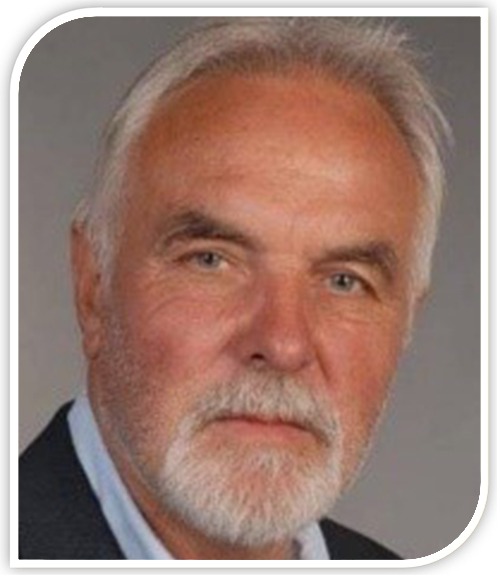 Prof. Gerd Birkenmeier from the University of Leipzig, Germany, will join the Targeting Microbiota 2021 Congress and will give a presentation entitled "What Can the Microbiota of the Naked Mole-Rat Tell Us – The Clue to Longevity".
Prof. Gerd Birkenmeier from the University of Leipzig, Germany, will join the Targeting Microbiota 2021 Congress and will give a presentation entitled "What Can the Microbiota of the Naked Mole-Rat Tell Us – The Clue to Longevity".
Targeting Microbiota 2021 Congress
October 20-22, 2021 - Paris, France & Online
www.microbiota-site.com
Exosomes and Microbiota: Recent Advances and Perspectives

Dr. Duncan Ross and Dr. Rainer Mutschler from Biomedical Center Speyer, Germany, will talk about Exosomes and Microbiota: Recent Advances and Perspectives.
They both confirm that exosomes, or extracellular vesicles, are nanometer lipid vesicles known to be secreted by most eukaryotic and prokaryotic cell types. Additionally, it is well known that germ free animal models lacking commensal bacteria are prone to food allergies among other types of dysfunction. The production of extracellular vesicles by gram negative and gram positive bacteria is recently being understood and are classified as outer membrane vesicles when released by Gram-negative bacteria or as membrane vesicles when released by Gram-positive bacteria. In some models, bacterial EVs alone can induce regulatory T cell formation potentially tolerizing the host to these foreign antigens. The isolation and more importantly, characterization, of these small vesicles is a rapidly evolving field. Methods such as dSTORM, High performance liquid chromatography, RNA characterization and the use of known control EVs are all critical to the creation of reproducible exosome products. Bacterial EVs can interact with host cells through three mechanisms: (1) direct activation of host receptors; (2) delivery of bacterial EV content; and (3) full incorporation of EVs into the host cell cytoplasm. TLR activation and downstream signaling will be discussed in the context of host immune responses, as well as methods of GMP manufacturing of same.
Other Speaker in the session:

Dr. Rainer Mutschler, Biomedical Center Speyer, Germany
Targeting Microbiota 2021 Congress
October 20-22, 2021 - Interactive Online Congress
www.microbiota-site.com
Reconstruction of Ancient Microbial Genomes from the Human Gut
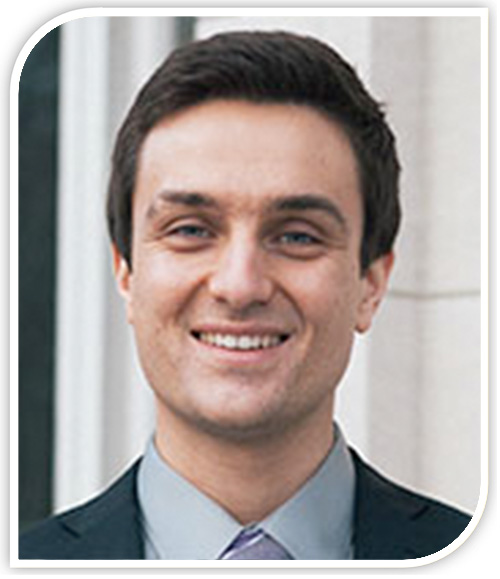 It is a great pleasure to announce you that Dr. Aleksandar Kostic from Harvard Medical School, USA will give a keynote talk during the Targeting Microbiota 2021 about his excellent study published in Nature concerning the "Reconstruction of Ancient Microbial Genomes from the Human Gut".
It is a great pleasure to announce you that Dr. Aleksandar Kostic from Harvard Medical School, USA will give a keynote talk during the Targeting Microbiota 2021 about his excellent study published in Nature concerning the "Reconstruction of Ancient Microbial Genomes from the Human Gut".
The ISM Scientific Committee stated that "Dr. Aleksandar Kostic's study is one of the most excellent study published this year".
More Articles...
- Critical Evaluation of Faecal Microbiome Preservation using Metagenomic Analysis
- Honeybees Microbiome: Recent Advances and Perspective on Compartmentalization in the Adult Gut
- Microbial Endocrinology as a Framework for understanding the Avian Microbiome in a Post-Antibiotic World
- Microbiota regulate social behavior via stress response neurons in the brain







